After years of integration and expansion, Alibaba's virtual machine ecosystem has gradually moved forward. Last month, we directly cancelled and merged the well developed Wannet into Alibaba Cloud's secondary domain name. Many netizens, including Lao Zuo, may express regret, but these frameworks and layout ideas are beyond our understanding, What we ultimately need is stable and cost-effective products, as well as simple process links.
Lao Zuo's consistent suggestion is that if we are a website or other project of a Chinese project, the process may start with more trouble because of the policy. However, in view of the stability and speed of the follow-up, we still recommend choosing other domestic virtual machine products such as Alibaba Cloud. After all, the speed and stability are better than those abroad. Of course, if our project is not enough or for other reasons, we can still choose Asian lines or computer room products such as the United States. In short, we need to meet our own needs.
So far, Alibaba Cloud ECS has not reached the data centers in Shanghai, Beijing, Shenzhen, Qingdao, Hangzhou, Hong Kong, and the United States, and the Singapore machine room is also under preparation. In the past, Alibaba Cloud sometimes gave away vouchers and I also drove some test machines. In fact, the speed of domestic machine rooms is the same. The price in Qingdao is a little cheaper. For the newly launched Shanghai machine room, the configuration starts with 1GB of memory, while other machine rooms start with 512MB of memory.
Lao Zuo previously shared articles about AliCloud servers or you need to:
1、 AliCloud ECS data disk mounting process mounts the website directory according to different environments
2、 Overview of AliCloud host management panel functions and creating snapshot backups
Last night, another netizen asked Lao Zuo how to buy AliCloud ECS. It is estimated that there are still many such friends, just like someone often asks how to log in to SSH tools. After all, each user has a different level. It doesn't happen that Lao Zuo is going to buy a new AliCloud ECS to test it as a common AliCloud server article for integrated sharing, so he records and shares the whole purchase process to see how the current machine's performance experience is.
First, Alibaba Cloud ECS purchase process
1. Alibaba Cloud ECS official website
Official website address: www .aliyun.com
What we need to note here is that Alibaba Cloud's products were relatively simple at the beginning, but now it provides products with different project requirements. We need to buy ECS servers here, so we can't buy them by mistake.
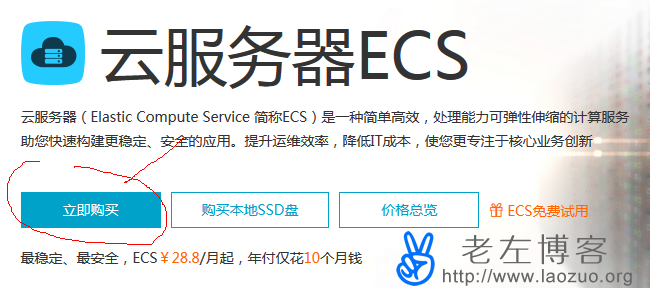
2. Select billing method

At present, Alibaba Cloud ECS has monthly package and pay as you go billing methods. This billing method is more suitable for our different project needs. If we need a long-term online website, and the traffic is not too large, we can choose to pay as you go, or we need to debug a project for a short period of use, and pay as you go is certainly cheaper than a monthly package.
In addition, we can also charge based on traffic deduction or fixed bandwidth. If we don't understand, we can read the document in detail, or just like Laozuo, we should buy monthly or yearly subscription directly, so that we can save money in case of volume based charging and deduction. If there is no timely recharge and payment, the account will be deleted.
3. Select the machine room and configuration scheme
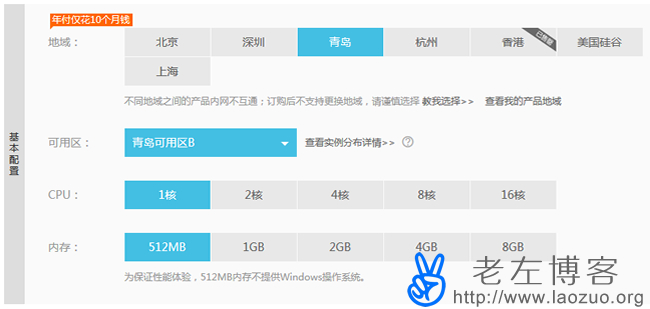
When Lao Zuo demonstrates the purchase process, I charge by monthly/annual payment scheme. Then we need to select lines from the existing machine rooms. My personal experience shows that the speed in China is similar, so I choose Qingdao machine room (Qingdao machine room is a little cheaper than other domestic machine rooms). Of course, we can also try to choose other machine rooms according to our own projects. Then choose the CPU core and memory. The 512MB memory scheme does not support Windows systems.
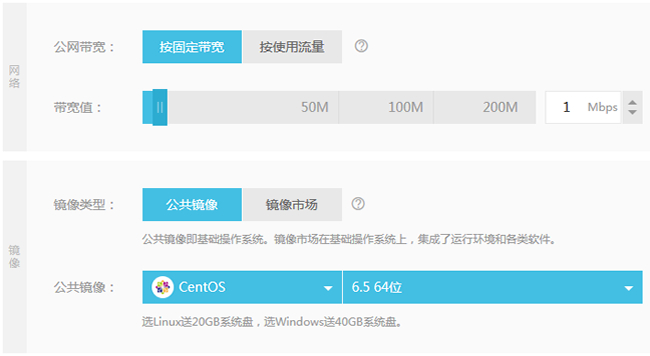
Here, we need to choose public network broadband, whether to charge by fixed bandwidth or by traffic usage. For novice users, it is more reliable to choose fixed bandwidth billing. In case traffic billing seems cheap at the beginning, but in case traffic usage exceeds the standard, the cost is unknown. We basically start from 1MB bandwidth, and generally 1Mbps bandwidth is enough for small websites.
Select the ISO image to install. We can select it according to our project deployment needs and our familiar environment, and then we can reinstall it.
4. Add a hard disk and set the ROOT password
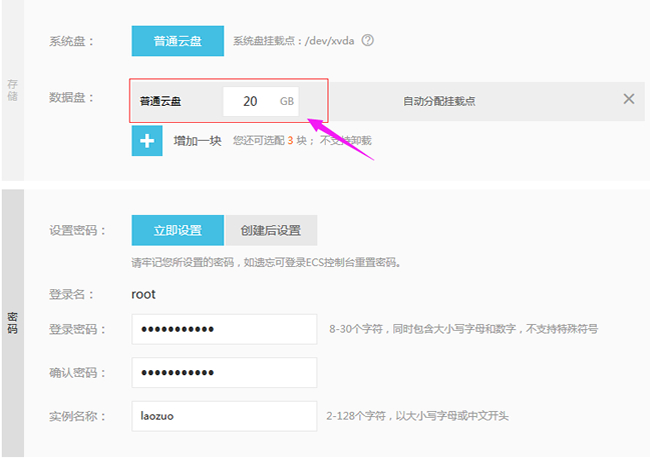
The default Linux system only has a 20GB hard disk. If our project is not enough, we can add up to three new hard disks. This is not for the operability of later projects. Lao Zuo will purchase another 20GB hard disk separately. The content requirements for attaching the hard disk will be useful in the following articles. Then we need to set the ROOT password of the current server. For instance names, we can write one or random.
5. Select purchase duration and check current scheme payment
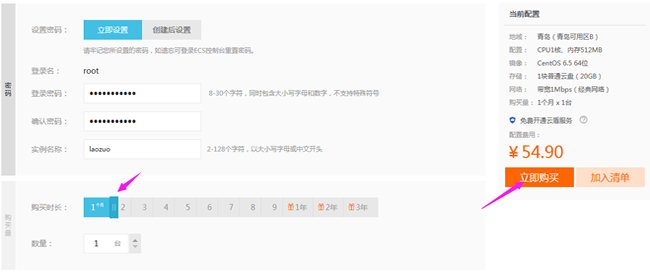
If we plan to use it for a long time, it is cost-effective to choose annual payment over monthly payment. For example, annual payment only costs 10 months. You can see that the current fee has been defined on the right according to the configuration we selected. If you are sure there is no problem, you can click Payment.
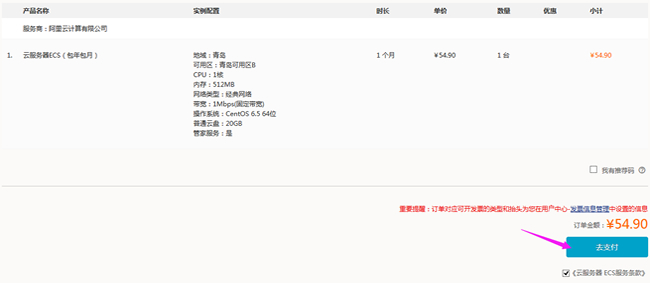
We checked the scheme again to see if there were any problems. If there were no problems, we would pay. Alipay and online banking are supported.
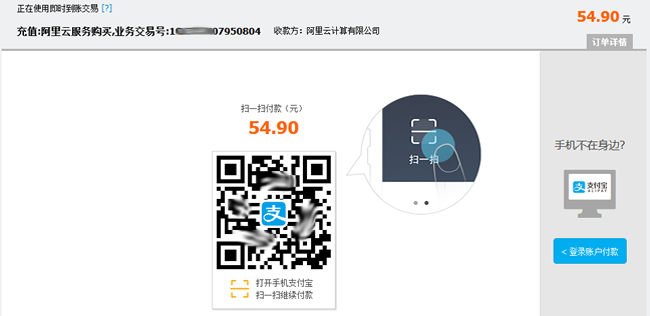
Here Laozuo directly uses Alipay to pay. After payment, we can find the ECS menu in the Alibaba Cloud background. There should be a server we just purchased.
Second, simple application of Alibaba Cloud ECS server panel
In general, no matter which host we buy, as long as we learn how to purchase other hosts, we don't need much knowledge. We can log in to the panel to restart, install new systems, and simply set the account password. Other functions may not be available to most users.
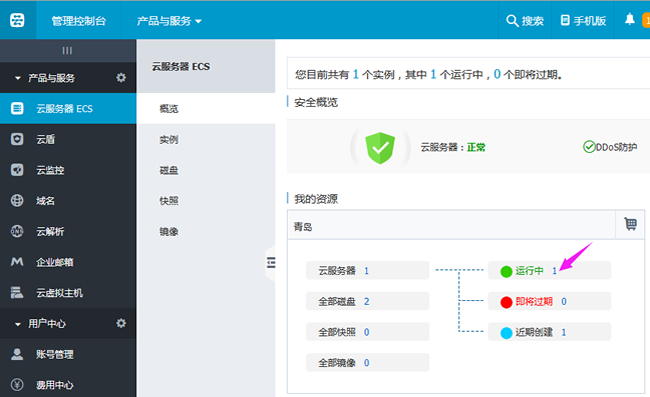
We log in to the background of the panel and find the ECS server we just purchased. We can see that there is one currently, which is the ECS server we just purchased. Click it to manage it.
1. Stop, restart, change password
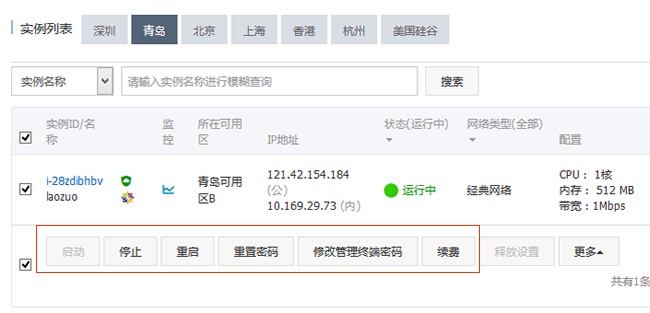
As shown in the figure above, we can basically stop, restart, modify the terminal password, and renew the VPS server currently selected.
2. ECS reassembly system
Another thing we use most is to reinstall the system for the current server. We need to stop the current server before we can see the option of reinstalling the system.
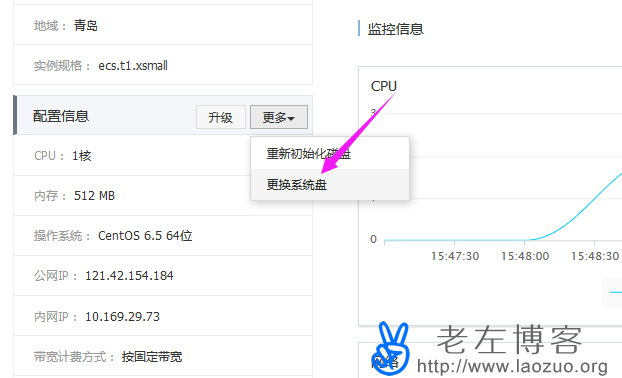
This interface is a little different from the previous one. We must shut down before reinstalling the system or initializing the current system. For replacing the system disk again, we can click to enter the operation interface and select the required environment to configure a new ROOT password.
In general, simple panel operations are like this. For other panel functions of AliCloud ECS, if I have time, I will share them separately later. For example, snapshot backup and rollback, which we commonly use, are more important and needed functions.
Third, AliCloud ECS performance test
Although we purchase VPS from domestic computer rooms, The speed experience is certainly better than that of foreign countries, but some performance and configuration comparisons are still needed. For example, we can compare the data we can test with other domestic products that we may be interested in. After all, we can't say that Alibaba Cloud's products must be the best, but it should be based on our actual projects and experience data.
1. PING speed test
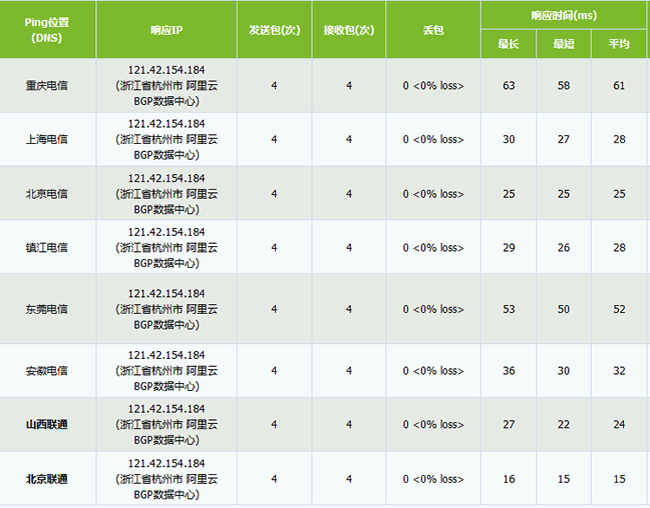
Needless to say, after all, the speed of domestic computer rooms is absolutely no problem, and the machines of other domestic businesses are the same.
2. CPU parameter configuration
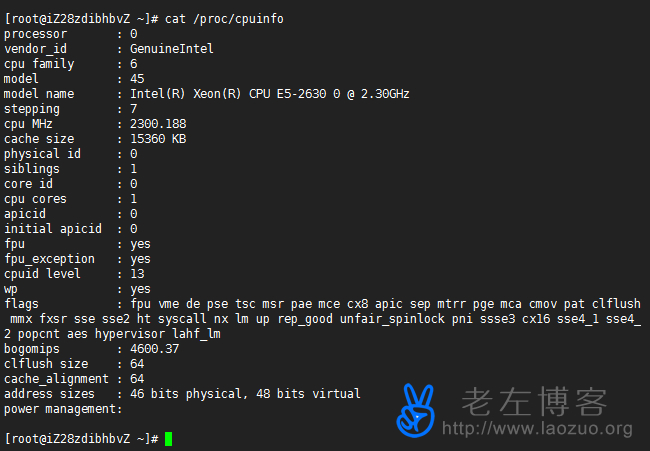
3. Hard disk IO performance test

4. SpeedTest test speed
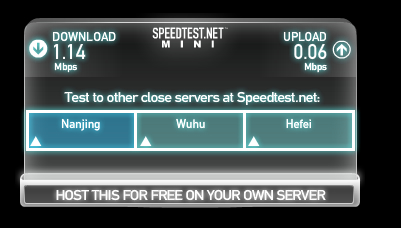
Then I download files from the server to check the speed locally.

5. UnixBench run test
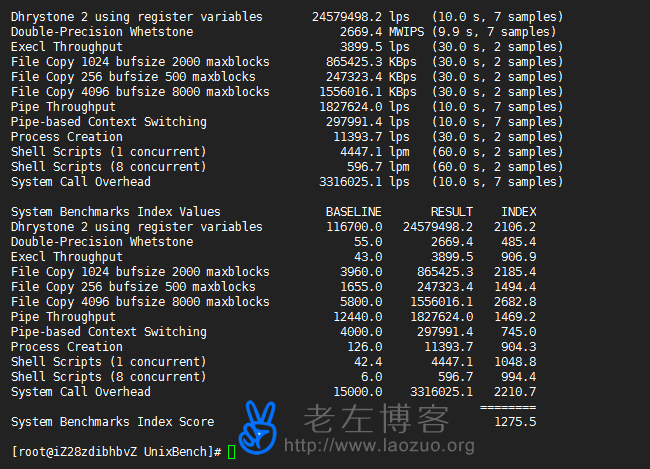
In conclusion, in this article, Lao Zuo comprehensively shared the purchase process of AliCloud ECS products and the application of simple VPS panels. This is a little helpful for friends who may need to purchase AliCloud ECS servers.
For the test data, I used the 512MB memory scheme of the Qingdao computer room product, and the opening speed must be no problem. After all, it is a domestic computer room, and the 1Mbps bandwidth is no problem for ordinary blogs, personal websites, and small traffic projects. If we need to use the products on large traffic projects, we still need a higher configuration.









































